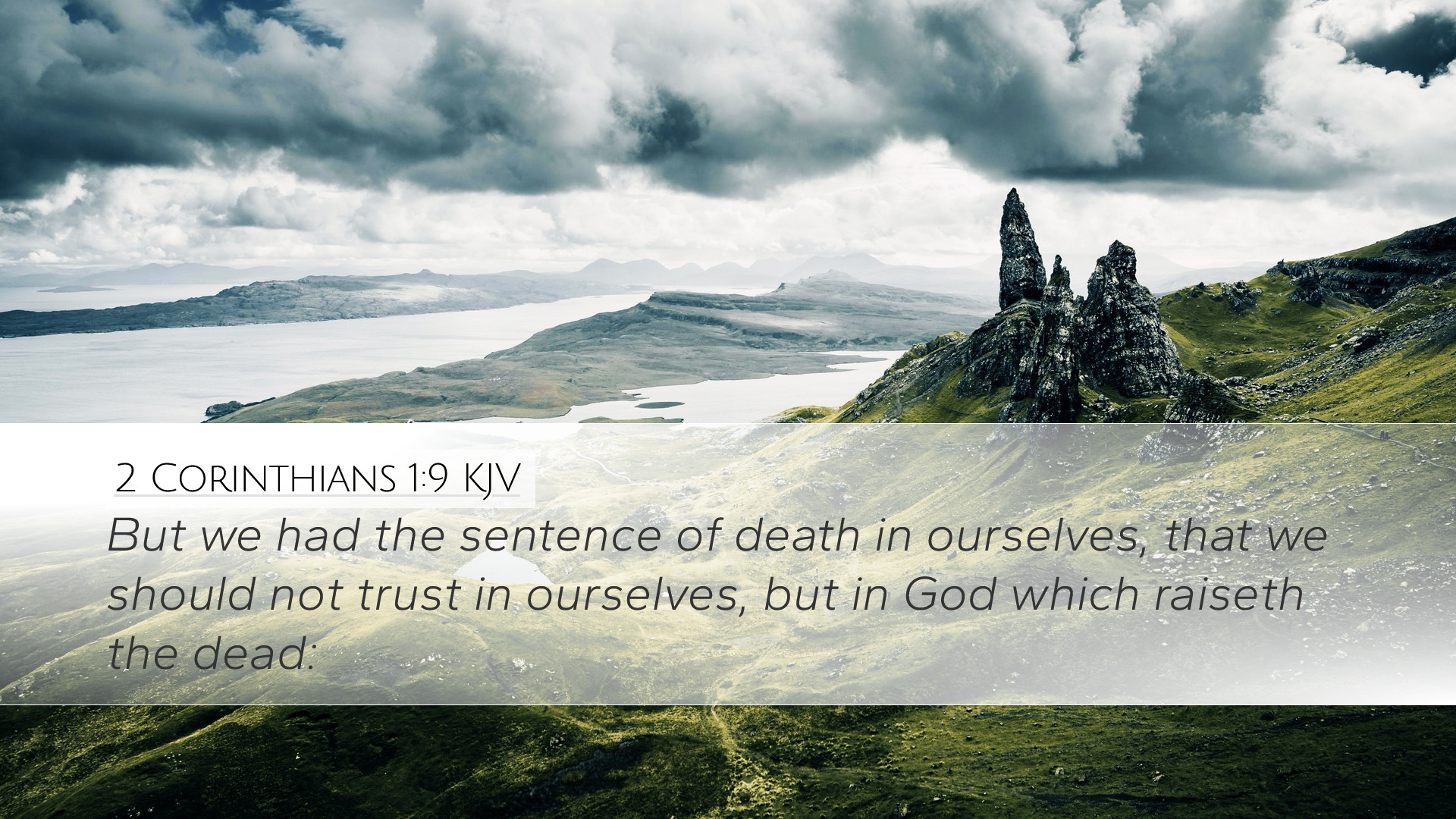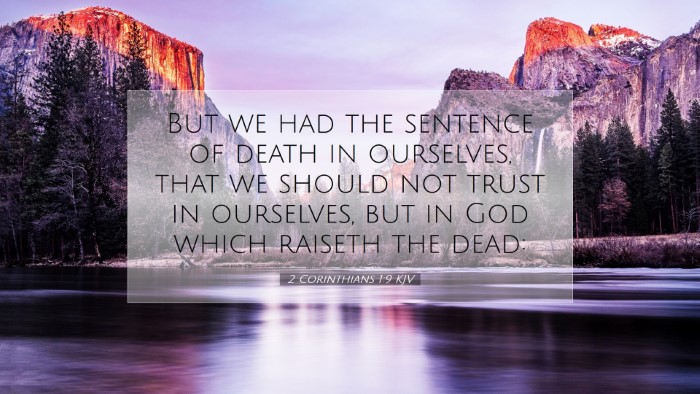Commentary on 2 Corinthians 1:9
In 2 Corinthians 1:9, the Apostle Paul writes, "But we had the sentence of death in ourselves, that we should not trust in ourselves, but in God which raiseth the dead." This verse encapsulates a profound theological and existential understanding of suffering, reliance on divine providence, and the assurance of resurrection. The insights from public domain commentaries clarify the depth of Paul's message and its implications for believers.
Exegesis of the Passage
Paul, in this epistle, recounts the trials faced in Asia, reflecting on the fear and despair that surrounded him. The key phrase, "the sentence of death," indicates the severity of their trials. Matthew Henry emphasizes that this phrase suggests a sentence imposed by their circumstances, leading to a realization of their own mortality and helplessness.
Human Helplessness
Henry notes that through their sufferings, Paul and his companions came to understand their limitations. They faced situations where their own strength was insufficient, pushing them toward a crucial revelation—that self-reliance is futile in the face of divine challenges.
Albert Barnes similarly remarks on the weight of the trials, explaining how such experiences can lead to a sense of despair that profoundly impacts one's faith journey. He argues that facing potential death fosters a reliance on God rather than self, aligning with the biblical principle that God’s grace is sufficient in our weakness.
The Purpose of Suffering
Paul's statement illustrates a duality of suffering and salvation. Adam Clarke interprets this duality, suggesting that God's purpose in allowing suffering is to guide believers to a fuller trust in Him. Clarke elaborates that knowledge of impending death—whether literal or figurative—leads to spiritual awakening and deeper reliance upon God's promises.
Moreover, Paul highlights that God "raiseth the dead," a potent reminder of the resurrection and hope beyond trials. This assurance is pivotal, as it links present suffering with future glory—a theme prevalent throughout Pauline literature.
Theological Implications
The act of placing complete trust in God rather than oneself can be seen as a central tenet of Christian theology. This transition from self-reliance to divine dependence is echoed in many scriptural teachings, notably Paul's own earlier works.
- Faith Over Fear: Trusting God amidst potential death is an act of faith, underscoring the promise of eternal life. Pastorally, this can challenge congregations to reflect on their own spiritual trust in difficult times.
- Defining Trials: Understanding that trials serve a purpose often leads to greater spiritual maturity. As Clarke notes, experiencing God's deliverance through hardship strengthens one’s faith.
Practical Applications
For pastors and spiritual leaders, this passage can serve as a powerful reminder of the importance of cultivating a community grounded in faith during difficult times. Believers are encouraged to articulate their trials and the ways in which God has provided support and deliverance.
- Encouraging Vulnerability: Pastors can create spaces where individuals are encouraged to share their struggles honestly, aligning with Paul's example of sharing both his afflictions and the resulting faith.
- Preaching Hope: Sermons based on this passage should emphasize God’s capacity to resurrect hopes and dreams, even after devastating experiences.
Conclusions
In summary, 2 Corinthians 1:9 serves as a profound reminder of human fragility and the necessity of placing profound trust in God. The insights from Henry, Barnes, and Clarke enrich our understanding of the duality of suffering and reliance on God's eternal power. For theologians, this passage invites deeper reflection on the relationship between suffering, faith, and resurrection—a cornerstone of Christian doctrine. Ultimately, pastors and students alike are encouraged to embrace this text as a source of encouragement, fostering resilience and hope within themselves and their communities.


